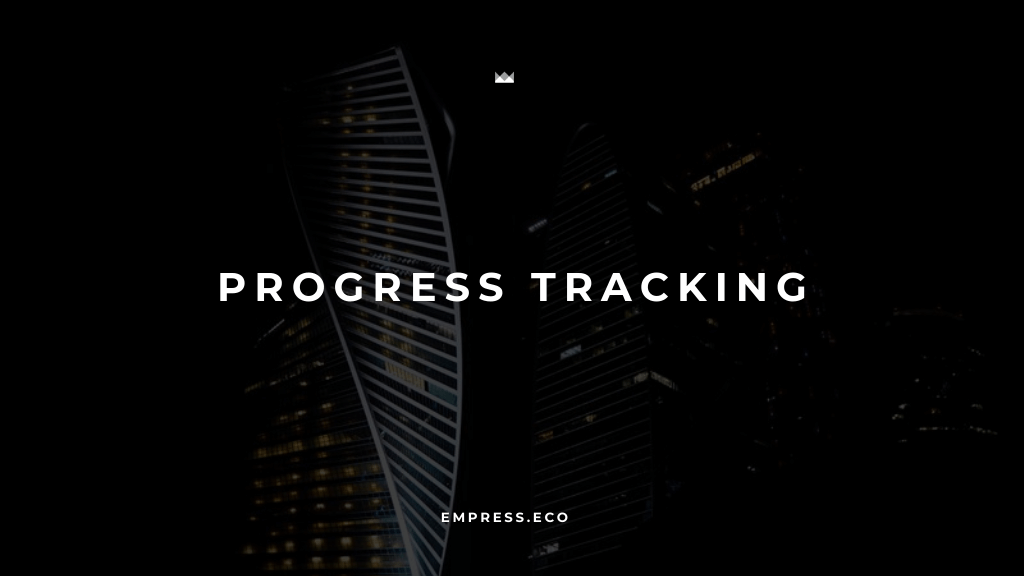
Enhance Business Operations with MAIA’s Real-Time AI Progress Tracking
Importance of real-time data for optimizing operations and decisions.
Table of Contents
The ability to make informed decisions quickly is crucial for maintaining a competitive edge. Real-time progress tracking with AI is transforming how businesses operate by providing up-to-the-minute data that enhances decision-making and optimizes workflows. This blog explores the importance of real-time data for business operations and decision-making, highlighting the benefits and real-world applications of AI-driven progress tracking.
Understanding Real-Time Progress Tracking with AI
Real-time progress tracking with AI involves using advanced technologies to continuously monitor and analyze data as it becomes available. This approach enables businesses to gain immediate insights into their operations, allowing for swift adjustments and informed decision-making. By leveraging AI, companies can automate data collection, enhance accuracy, and predict future trends, leading to more efficient and effective operations.
Benefits of Real-Time AI-Driven Progress Tracking
Enhanced Efficiency and Transparency
AI-powered progress tracking significantly improves data analysis accuracy by reducing the likelihood of human error. Real-time data updates provide stakeholders with immediate access to project progress information, fostering transparency and accountability. This streamlined tracking process boosts overall efficiency and ensures that everyone is on the same page.
Automated Data Gathering and Analysis
AI eliminates the need for manual data entry by automating the gathering and analysis of project data. This automation ensures consistent and accurate data processing while saving valuable time. Project managers can make decisions based on real-time, accurate information, enhancing the overall quality of decision-making.
Predictive Analytics for Proactive Management
One of the most powerful features of AI is its ability to provide predictive analytics. By analyzing historical data and identifying trends, AI can predict potential risks or delays before they occur. This proactive approach allows project managers to take preventive actions, minimizing disruptions and optimizing project outcomes.
Real-World Applications of AI-Driven Progress Tracking
Healthcare: Enhancing Patient Care
In the healthcare sector, AI-driven progress tracking is used to monitor patient treatment plans and outcomes in real-time. This continuous monitoring allows healthcare providers to make timely adjustments to treatment protocols, improving patient care and outcomes.
Manufacturing: Optimizing Production Processes
Manufacturers leverage AI to monitor production lines in real-time, identifying inefficiencies and optimizing workflows. AI-driven progress tracking helps maintain high-quality standards and reduces downtime by predicting maintenance needs.
Finance: Streamlining Financial Reporting
In the financial sector, AI-driven progress tracking is used to monitor financial transactions and generate real-time reports. This capability enhances transparency and allows financial institutions to quickly identify and address discrepancies.
Overcoming Challenges in AI-Powered Progress Tracking
Ensuring Data Quality and Integration
One of the primary challenges in implementing AI-driven progress tracking is ensuring the quality and integration of data from multiple sources. Businesses must invest in integration solutions and data quality technologies to ensure that AI systems can process accurate and comprehensive data.
Addressing Fairness and Bias
AI systems can produce biased results if they are trained on biased data sets. To ensure fairness, it is important to regularly monitor AI systems for biases and make necessary adjustments. This continuous evaluation helps maintain the integrity and fairness of AI-driven decisions.
Managing Costs and ROI
Implementing AI solutions can be costly, and achieving a return on investment (ROI) may take time. Businesses must conduct a comprehensive cost-benefit analysis to justify the initial investment and set realistic ROI expectations.
Case Studies: Successful AI-Driven Progress Tracking Implementations
Delta Air Lines: Improving Baggage Handling
Delta Air Lines invested significantly in airport baggage systems, leveraging real-time data analytics to enhance baggage handling processes. This investment resulted in a substantial reduction in mishandled baggage, significantly improving customer satisfaction.
Netflix: Transforming Content Recommendations
Netflix uses real-time data analytics to monitor subscriber behavior and preferences, enabling personalized content recommendations. This AI-driven approach has transformed Netflix into a global streaming giant, demonstrating the power of real-time data in driving business success.
How to Implement AI-Driven Progress Tracking
Implementing AI-driven progress tracking requires careful planning and execution. Here are some steps to help you get started:
Identify Key Metrics
Determine the key metrics that are most important to your business operations. These could include production rates, sales figures, customer satisfaction scores, or any other critical performance indicators. Knowing what to measure is the first step in setting up effective real-time tracking.
Choose the Right AI Tools
Select AI tools and platforms that align with your business needs. There are numerous AI solutions available, each with its own strengths and weaknesses. Look for tools that offer robust data integration, real-time analytics, and user-friendly interfaces.
Integrate Data Sources
Ensure that your AI system can access data from all relevant sources. This might include databases, cloud storage, IoT devices, and other data streams. Effective integration ensures that your AI-driven progress tracking system has access to comprehensive and accurate data.
Train Your Team
Provide training for your team on how to use the AI tools effectively. This includes understanding how to interpret real-time data, making adjustments based on insights, and maintaining the system. A well-trained team is essential for maximizing the benefits of AI-driven progress tracking.
Monitor and Adjust
Continuously monitor the performance of your AI system and make adjustments as needed. This includes addressing any data quality issues, updating algorithms, and refining processes based on feedback and results. Regular monitoring ensures that your system remains effective and up-to-date.
The Future of Real-Time Progress Tracking with AI
As AI technology continues to advance, the capabilities of real-time progress tracking will only improve. Here are some trends to watch for in the coming years:
Increased Integration with IoT
The Internet of Things (IoT) is generating vast amounts of data from connected devices. By integrating AI with IoT, businesses can gain even deeper insights into their operations. For example, manufacturers can use IoT sensors to monitor equipment performance in real-time, while AI analyzes the data to predict maintenance needs and optimize production schedules.
Enhanced Predictive Capabilities
AI algorithms are becoming more sophisticated, allowing for more accurate predictions. Businesses will be able to anticipate market trends, customer behavior, and operational challenges with greater precision. This enhanced predictive capability will enable more proactive and strategic decision-making.
More User-Friendly Tools
AI tools are becoming more accessible and user-friendly, making it easier for businesses of all sizes to implement real-time progress tracking. Expect to see more intuitive interfaces, better integration with existing systems, and more affordable solutions.
Greater Focus on Ethical AI
As AI becomes more prevalent, there will be an increased focus on ensuring that AI systems are fair, transparent, and unbiased. Businesses will need to develop ethical guidelines and practices to ensure that their AI-driven progress tracking systems operate responsibly.
Conclusion
Real-time progress tracking with AI is revolutionizing business operations by providing immediate insights that enhance decision-making and optimize workflows. By leveraging AI-driven automation, predictive analytics, and real-time data updates, businesses can achieve greater efficiency, transparency, and proactive management. As the digital landscape continues to evolve, embracing AI-powered progress tracking will be crucial for maintaining a competitive edge and driving sustainable growth.
Implementing AI-driven progress tracking requires careful planning, the right tools, and ongoing monitoring. By following best practices and staying ahead of technological trends, businesses can harness the full potential of AI to transform their operations and achieve long-term success. Start exploring AI solutions today to unlock new opportunities for efficiency and innovation in your organization.
Incorporating AI into your real-time progress tracking processes can provide your business with the tools it needs to thrive. By enhancing operational transparency, automating data gathering and analysis, and utilizing predictive analytics, AI-driven solutions ensure that your business remains agile and responsive. As you move forward, consider the long-term benefits of AI and how it can transform not just your operations but your entire approach to business management. The future of efficient, data-driven decision-making is here, and with AI, your business can be at the forefront of this exciting transformation.
Empress Newsletter
Join the newsletter to receive the latest updates in your inbox.







